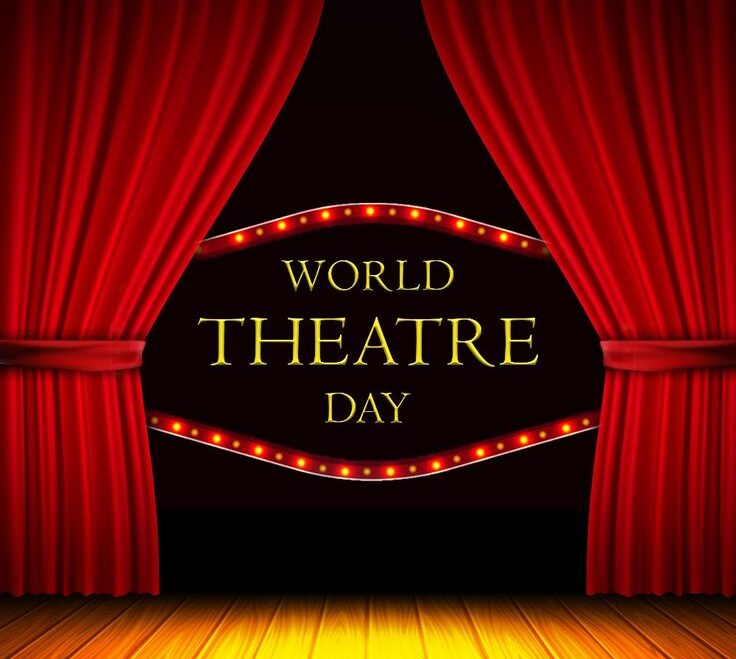7 Inspiring Reasons Why World Theatre Day is Vital for Society
World Theatre Day, celebrated annually on March 27, is an event dedicated to the celebration of the art of theatre and its importance in promoting cultural exchange, creativity, and social change. Since its inception in 1961, World Theatre Day has served as a platform for theatre professionals worldwide to come together and reflect on the powerful impact of theatre in societies.
What is World Theatre Day?
World Theatre Day was established by the International Theatre Institute (ITI) in 1961 as a day to celebrate the importance of theatre and performing arts in society. It encourages reflection on the social, cultural, and artistic contributions that theatre provides. Theatre has long been a medium for storytelling, social commentary, and community engagement, and this day serves to honor its role in shaping societies globally.
History of World Theatre Day
- 1961: The International Theatre Institute (ITI), a global organization dedicated to the promotion of the performing arts, declared March 27 as World Theatre Day. The goal was to recognize the importance of theatre and foster greater awareness of its social and cultural significance.
- World Theatre Day Messages: Each year, a prominent theatre figure is invited to write a message to mark the day. These messages are shared globally, spreading awareness about the power of theatre in transforming lives and shaping opinions.
- Global Celebrations: World Theatre Day is marked by various events such as theatre performances, discussions, workshops, and outreach programs, all designed to engage audiences and raise awareness of the impact of theatre.
Daily Life Impacts of Theatre
Theatre has a unique way of influencing everyday life by shaping the way people think, feel, and communicate. Here’s how theatre impacts daily life:
- Fosters Creativity: Theatre encourages creativity and imagination, both in artists and audiences. It invites individuals to think outside the box and explore new ideas.
- Cultural Awareness: By representing different cultures, histories, and traditions, theatre promotes understanding and empathy among diverse groups of people.
- Emotional Expression: Theatre allows people to express and process emotions in a healthy and creative way. Whether through performance or as an audience member, it provides an outlet for personal reflection.
- Social Commentary: Theatre has long been used as a platform for social change. It addresses social issues such as inequality, injustice, and political oppression, sparking conversations that lead to action.
- Community Building: Local theatre groups often bring communities together, fostering connections and creating a sense of belonging. It strengthens social ties and promotes collaboration.
- Educational Tool: Theatre is used as an educational tool in schools to enhance language skills, foster critical thinking, and improve confidence in public speaking.
How is World Theatre Day Observed?
World Theatre Day is celebrated through a variety of events that highlight the importance of theatre in society:
- Theatre Performances: Theatre companies, both professional and community-based, perform special productions to mark the occasion. These performances often have social or political themes, further emphasizing theatre’s role in addressing current issues.
- Workshops and Seminars: Many theatres organize workshops, conferences, and discussions aimed at fostering a deeper understanding of theatre’s role in modern society.
- Public Celebrations: Local theatres may offer free performances or reduced-price tickets on World Theatre Day to encourage a wider audience to experience the magic of theatre.
- Global Message: A message from a prominent figure in the theatre world is distributed globally to underline the significance of theatre. The message often touches on the current state of global theatre, its challenges, and its future direction.
- Social Media Campaigns: Theatre companies, performers, and fans use social media platforms to share their experiences and promote the value of theatre. Hashtags such as #WorldTheatreDay help spread the word to a global audience.
7 Key Facts About Theatre and Its Significance
- Theatre as a Universal Art Form: Theatre transcends language barriers and has been practiced across the world for thousands of years. It is a universal form of expression that adapts to different cultures, contexts, and times.
- Theatre for Social Change: Theatre has often been a tool for advocating social justice. Famous playwrights like William Shakespeare, Bertolt Brecht, and August Wilson used theatre to challenge norms, question authority, and push for change.
- Therapeutic Benefits: Theatre is used as a form of therapy in many contexts, including drama therapy, to help individuals overcome emotional challenges, express trauma, and heal.
- Economic Impact: The theatre industry contributes significantly to the economy, creating jobs for performers, set designers, costume designers, and other professionals. It also attracts tourism and promotes local businesses.
- Celebration of Diversity: Theatre offers a space where diverse voices, perspectives, and cultures can be heard. It has long been a platform for marginalized groups to share their stories and experiences.
- Theatre’s Educational Role: Plays and performances educate audiences about different aspects of history, culture, and human behavior. They inspire critical thinking and open dialogue.
- The Power of Live Performance: Unlike films or television, theatre is a live art form, and its performances are unique each time they are presented. This gives audiences a chance to connect with the performers in a personal and emotional way.
FAQs About World Theatre Day
Q1: Why is World Theatre Day important?
A: World Theatre Day is essential because it highlights the role of theatre in fostering creativity, promoting cultural awareness, and addressing societal issues. It brings attention to the universal importance of this art form and encourages its growth.
Q2: Who can celebrate World Theatre Day?
A: Everyone can celebrate World Theatre Day, from theatre enthusiasts and performers to students, educators, and community leaders. It is an opportunity for all to reflect on the power of theatre in shaping the world.
Q3: How can I participate in World Theatre Day?
A: You can participate by attending a local theatre production, engaging in online discussions, supporting your favorite theatre company, or even organizing an event in your community to celebrate the day.
Significance of World Theatre Day
- Promotes Cultural Exchange: Theatre promotes cultural exchange and diversity, encouraging people from different backgrounds to learn from one another and appreciate different perspectives.
- Fosters Empathy: By immersing audiences in the experiences of others, theatre fosters empathy and understanding, breaking down barriers between different groups of people.
- Advocates for Change: Theatre has always been a powerful tool for social change. It highlights injustices and invites audiences to question the status quo, sparking action and progress.
- Celebrates Artistic Achievement: World Theatre Day is a celebration of the dedication, creativity, and talent of theatre professionals worldwide. It acknowledges the hard work and passion that goes into every performance.
- Encourages Collaboration: Theatre brings people together and encourages collaboration between actors, directors, designers, and audiences. It is a collective art form that thrives on teamwork and shared creativity.
Wishing and Spreading the Message
Share these powerful messages to mark World Theatre Day:
- “Happy World Theatre Day! Let’s celebrate the power of theatre to inspire change, foster creativity, and unite us all.”
- “Theatre is more than just a performance; it’s a reflection of society. Let’s honor its impact on the world today!”
- “On World Theatre Day, let’s remember how theatre has shaped cultures and sparked change. Here’s to the magic of live performance!”
Conclusion
World Theatre Day is an opportunity to reflect on the immense value theatre brings to society. It highlights theatre’s role in promoting creativity, cultural understanding, and social change. By celebrating this day, we recognize the power of the performing arts to transform lives, challenge perceptions, and connect us all. Whether you’re a performer, a theatre lover, or someone experiencing theatre for the first time, this day is a reminder of the significance of theatre in our lives.










